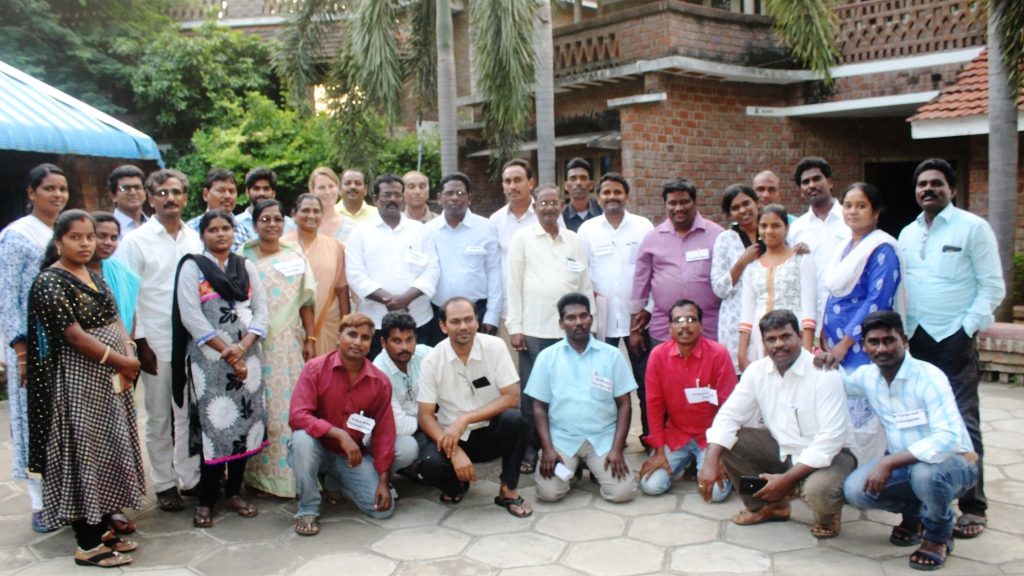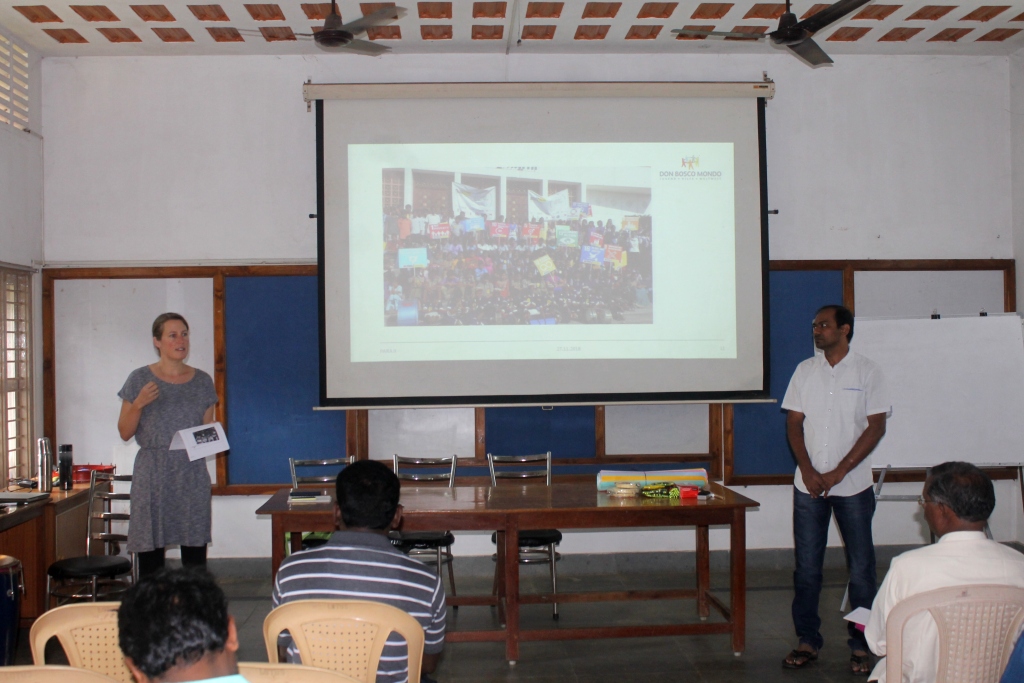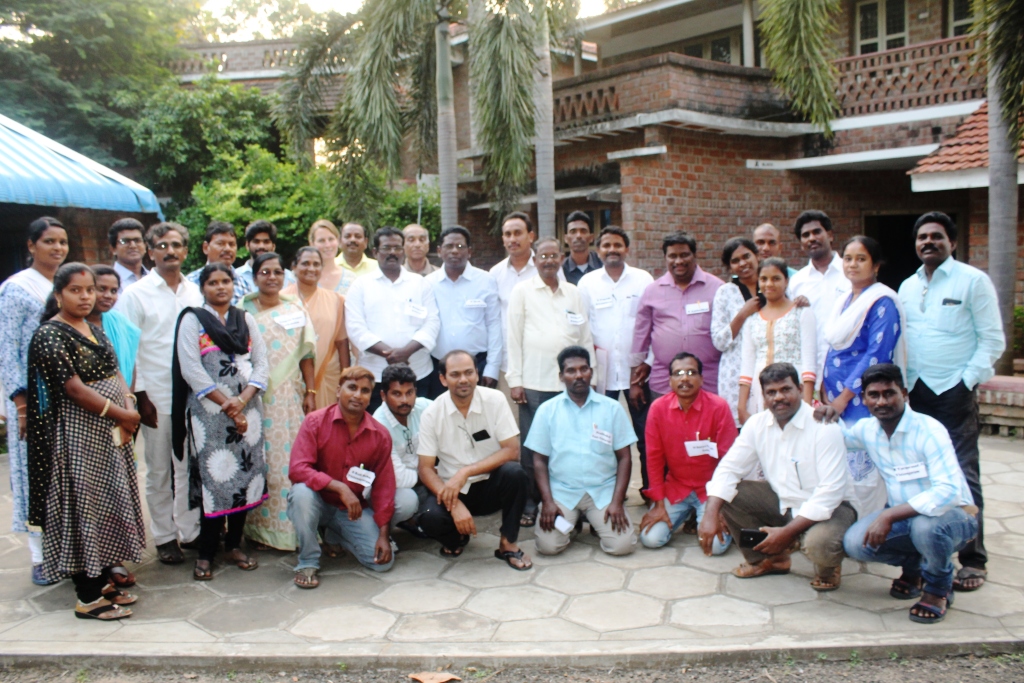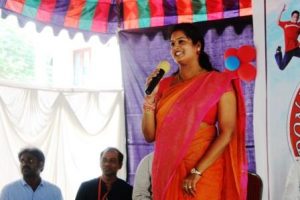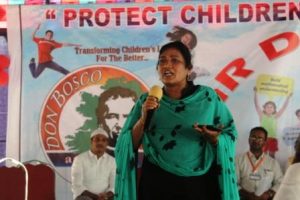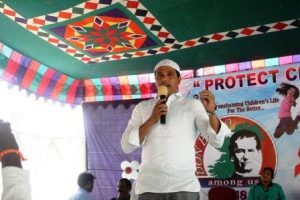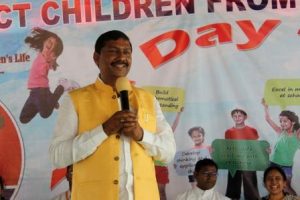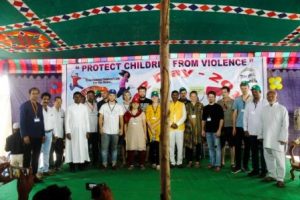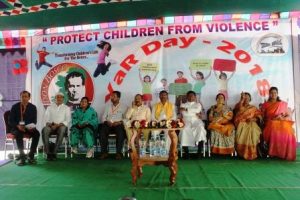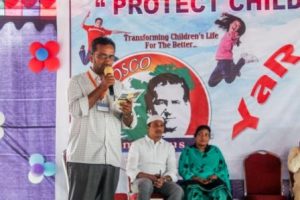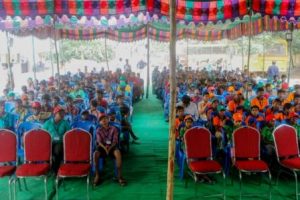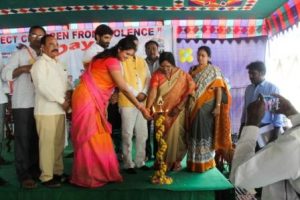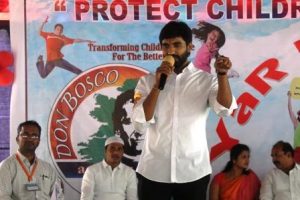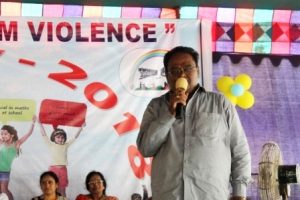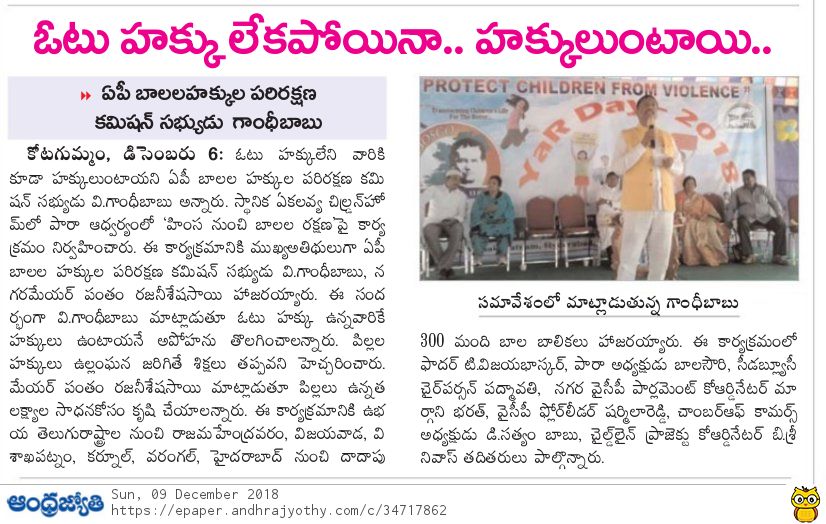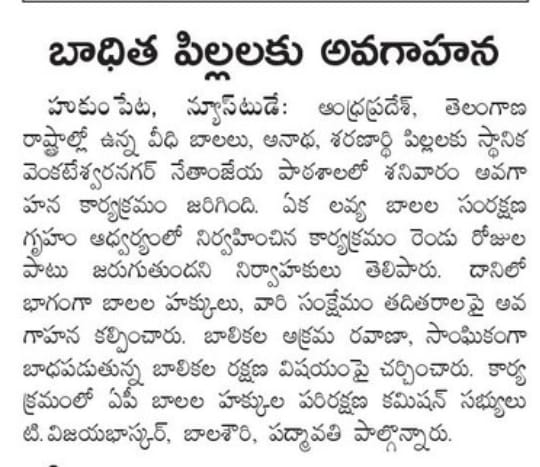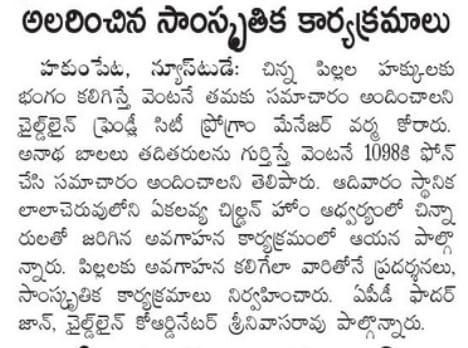Sussane, a team member of Don Bosco Mondo, was treated to a warm welcome by Director Fr. Ignatius Vattigunta and staff of PARA on November 26, 2018 at PARA campus, Ravulapalem, Andhra Pradesh. Fr. Ignatius went through the phase-I of the project and why it was taken up here. He spoke of several cases of child rights’ violations, children not being heard and children not aware of their rights. Moreover, there was no evidence of a culture of Human Rights.
The director said that the intervention of PARA saw increased number of Human Rights’ Clubs and raised awareness on child rights and child participation. However, he also spoke of the setbacks: there was no sustainable Human Rights’ culture and high number of violations of child rights is still taking place.
Talking about the phase-II of the project, Fr. Ignatius said that one aim was to involve the government and to link the clubs with communities through Village Child Rights Protection Committees. This would also help in the sustainability of these efforts.
To break the ice between them, the staff members introduced themselves and explained their responsibilities to Susann, who in turn explained the purpose of her visit to India, namely, to review the current status of the project and to conduct a workshop on how to report to Don Bosco Mondo. Later, Sussane introduced herself and explained the purpose of the visit to India from Germany.
Beginning the process of explaining the format of reporting, Susanne gave modules to the staff in which there was an additional column, “Means of Verification,” besides goals and indicators.
Earlier in the phase-I, there was no such column. The team member of Don Bosco Mondo said the ‘objective’ of the workshop was to review the current indicators and examine them carefully to ascertain possible ways of verification.She explained that while the indicators describe the success of the project, the “means of verification” indicate where and how the information is obtained.
To make the session participatory, she asked the participants to form 5 groups and brainstorm on “Means of Verification”. Each group presented their “Means of Verification” to all participants and discussed in detail the same. After two presentations, the session broke for lunch.
Before the session could resume, post lunch, the staff observed the 69th Indian Constitution Day – also known as Samvidhan Divas. Later, the remaining three groups presented the “Means of Verification”. After each presentation, the session was open for suggestions and views which further helped participants understand the difference between “Indicators and “Means of Verification”.Each “means of verification” was scrutinised, and further possibilities were explored by participants as well as Susanne. The day ended with the feedback from all the participants on the discussions of the day.
On the second day, the session began with Fr. Ignatius revisiting the “means of verification” suggested by all groups on the previous day. A team of two staff along with the director and Susanne had filtered the suggestions made on November 26.
Susanne, then, presented her PPT on BMZ regulations.She explained the funding scheme. She added that BMZ gives 75%, SDB/FMA gives 15% and Don Bosco Mondo (DBM) gives 10% funds to the project. The presenter also gave details about the roles of each organisation i.e., BMZ (Federal Ministry of Economic Cooperation and Development of Germany) provides funds, SDB/FMA implements the project and reports to DBM and the DBM administers the project and reports to BMZ.
The agenda of the session was to create awareness among the staff of PARA on reporting format as they will be submitting reports to DBM. Susanne explained the regulatory statute of reporting and said that upon every three months, a quarterly report should be submitted. Likewise, upon six months, a half-yearly report, annual report, follow-up report and audit report should be submitted to DBM, which will then be forwarded to BMZ after editing, if needed. Talking about the reporting format, she asked the group to give an overview of the activities implemented in the three months and an update with regard to the status of funds of the project.
She also highlighted the due date 15.02.2019 of the annual report and asked the staff to report on 01.01.2019 so that there would be time for review, improvisation and correction, if any. Susanne also underlined the different components that should be incorporated in the report. She said the report should be narrative, financial matters should be touched upon, audit section, supporting documents according to the project agreement and photos (JPEG) should be attached.
The team member of the DBM added that the actual state of the project implementation, outlook on future project progress, special notes, success stories, documents or bills of items purchased, and presentation of “means of verification” should also be reported.
Information like changes in the general conditions and project implementation organisation, target-actual-comparison of all measures or activities and outputs, cooperation with other stakeholders, appropriateness of the utilisation of the resources should be mentioned in the report.
When staff brought to her notice the difficulties in yielding 100% results, Susanne said that it was completely understandable if that were the case. She added that the staff needed to document the challenges to support their claims. If there are negative results, even those should also be mentioned in the project report, she said. Finally, the overall assessment of relevance, effectiveness, efficiency and sustainability or viability of the project is to be followed by the conclusion.
Later, she handed over the stamp to the finance department which needs to be every bill that is to be claimed by the implementing organisation. After explaining thoroughly the financial section, she conducted an exercise for staff. Five volunteers were given five bills and were asked to tell in which section it fits. She then opened the session for feedback. Susanne received a very positive review from the participants.

